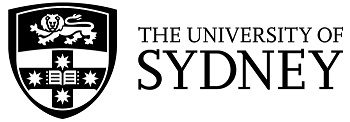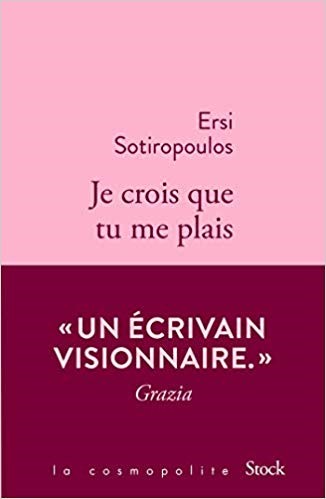Octobre 2019
Recherche
Financements pour la recherche
Collaboration UNIGE - USyd

Dans des pays multiculturels comme l’Australie et la Suisse, les professionnels de la santé souffrent du manque de critères de référence pour évaluer la traduction des communications médicales. Ce projet tente de développer des ressources communes pour la traduction et la communication ; en Australie, l’accent est mis sur l’aide à la population aborigène, alors qu’en Europe, la recherche est motivée par la crise des réfugiés. La Professeure Pierrette Bouillon et la Professeure Meng Ji ont reçu un financement de près de 40'000 dollars australiens (environ 27'000 francs suisses) de la part de l’USyd - UNIGE - Partnership Collaboration Awards (PCA) pour mener à bien ce projet.
Collaboration UNIGE – ULB
Ces dernières années, les mouvements migratoires de populations arabophones vers l’Europe ont mis en évidence l’importance de la langue comme facteur d’intégration, en particulier dans la recherche d’emploi. C’est dans ce contexte qu’est né un projet de collaboration entre la FTI et l’Université libre de Bruxelles (ULB), dont l’objectif est de créer un prototype de module d’apprentissage du français pour préparer les migrants de langue arabe à passer des entretiens d’embauche. Dans le cadre de ce projet, les Professeures Pierrette Bouillon et Sonia Halimi de la FTI et Mme Sabina Gola de l’ULB ont reçu un crédit d’impulsion pour mettre en place une plateforme d’enseignement du français intégrant les plateformes CALL-SLT (de la FTI) et Multigram (de l’ULB).
Publications récentes des collaborateurs
Monographie

|
|
Contributions à des ouvrages collectifs
Il y a quelques mois, un livre est paru en hommage à Michel Ballard, historien, théoricien et didacticien de la traduction, docteur honoris causa de l’Université de Genève, décédé en 2015. Au cœur de la traductologie – Hommage à Michel Ballard inclut, entre autres, une contribution de Mme Catherine Anaïs Bocquet, « Les pseudos-traducteurs et leurs motivations », ainsi que la dernière contribution de son époux, le Professeur Claude Bocquet, publiée à titre posthume, « Michel Ballard, un historien de la traduction et pourtant un véritable historien ». Cet ouvrage publié chez Artois Presses Université est dirigé par C. Wecksteen, L. D’hulst et M. Mariaule.
Davier, L. & Conway, K. (2019). Introduction: Journalism and translation in the era of Convergence. In L. Davier & K. Conway (Eds), Journalism and translation in the era of convergence (pp. 1-11). Amsterdam : John Benjamins.
Davier, L. (2019). Technological convergence threatening translation: The professional vision of francophone journalists in Canada. In L. Davier & K. Conway (Eds.), Journalism and translation in the era of convergence (pp. 177-207). Amsterdam : John Benjamins.
Fontanet, M. (2019). La traduction de la dimension culturelle sous l’angle du lecteur implicite. In N. Dziub, T. Musinova & A. Voegele (dir.), Traduction et interculturalité (pp. 12-28). Berne : Peter Lang.
Gendron, P., Conway, K. & Davier, L. (2019). News translation on the Canadian Broadcasting Corporation’s English and French websites. In L. Davier & K. Conway (Eds.), Journalism and translation in the era of convergence (pp. 63-81). Amsterdam : John Benjamins.
Cet ouvrage collectif porte sur la traduction journalistique dans les médias « convergents » ou « multiplateformes », c’est-à-dire qui sont déclinés sur plusieurs supports (papier, web, réseaux sociaux, etc.). Cette convergence entraîne une augmentation du nombre de contenus vidéo et, peut-être, une diminution du recours à la traduction.
Griebel, C. (2019). Rechtstexte unter der Lupe: Lesen Übersetzer anders als Juristen? Eine empirische Untersuchung der Rezeption von Textstrukturmarkern in der institutionalisierten Textsorte des französischen Kassationsgerichtsurteils. In I. Simonaes & M. Kristiansen (Eds.), Legal translation. Current Issues and Challenges in Research, Methods and Applications (pp. 221-242). Forum Fachsprachenforschung. Berlin : Frank und Timme.
In this article, the general question « Do (legal) translators read in a different way from legal experts » is narrowed down to the understanding of a particular text genre and its characteristic structure markers: French court decisions rendered by the Cour de cassation. By analysing the think-aloud protocols of 21 participants (professional legal translators, legal experts, students in translation and legal studies), the article focuses on the comprehension of typical structuring markers in this text genre.
Grin, F. (2019). Economics and Language Contact. In J. Darquennes, J. Salmons & W. Vandenbussche (Eds.), Language Contact. An International Handbook (pp. 707-718). Berlin : Mouton de Gruyter.
Ce chapitre met en relief les liens entre la question de la valeur des langues et la thématique du contact entre les langues, tout en discutant certains enjeux épistémologiques contemporains.
Guigue, A. (2019). Le droit d’amendement des parlementaires britanniques lors de la discussion des lois financières. In L. Ayrault, J. Benetti & M. Conan (Dir.), Les premières lois financières de la présidence Macron, Tome 104, (pp. 177-192). Paris : IRJS Editions.
Ce chapitre repose sur une analyse des amendements déposés par les parlementaires britanniques et du dispositif juridique qui les encadre. Il montre que les parlementaires britanniques ont une marge de manœuvre plus limitée que celle de leurs homologues français.
Halimi Mallem, I. S. & Bouillon, P. (2019). Google Translate and BabelDr in Community Medical Settings : Challenges of Translating into Arabic. In S. Faiq, (Ed.), Arabic Translation Across Discourses (pp. 27-44). London/New York : Routledge Taylor & Francis Group.
This chapter focuses on one component of an ongoing study conducted by the FTI and the Hôpitaux Universitaires de Genève (HUG): doctor-patient communication in emergency settings. We compare translation quality obtained with two different translation tools for the language pair French to Arabic: Google Translate and BabelDr, developed by the FTI and the HUG. We look at the impact of translation output quality on the transmission of information to patients, and at the impact of a type of incorrect translation in relation to the diagnosis.
Ruiz Rosendo, L. (2019). Exploring the cultural dimension of health translation. In C. Ji (Ed.), Cross-cultural health translation (pp. 14-29). London : Routledge.
In this contribution, the author argues that culture is a complex and dynamic notion, which has to be considered comprehensively in medical translation and interpreting in order to improve health literacy, reduce asymmetry in medical encounters and enhance the access of non-dominant populations to health systems.
Ouvrages collectifs
Prieto Ramos, F. (Ed.) (2019). Corpus-Based Research in Legal and Institutional Translation.
Special issue of Translation Spaces 8(1).
Ce numéro spécial, paru en juin 2019, rassemble une sélection d’articles issus notamment du Colloque Transius 2018, dont trois contributions de membres du Centre Transius :
-
Prieto Ramos, F. The use of corpora in legal and institutional translation studies: Directions and applications, pp. 1-11.
-
Prieto Ramos, F., Cerutti Benitez, G. & Guzman, D. Building representative multi-genre corpora for legal and institutional translation research: The LETRINT approach to text categorization and stratified sampling, pp. 93-116.
-
Felici, A. & Griebel, C. The challenge of multilingual ‘plain language’ in translation-mediated Swiss administrative communication: A preliminary comparative analysis of insurance leaflets, pp. 167-191.
Our study investigates Swiss insurance leaflets in three languages (French, German, Italian) and aims at evaluating language clarity on the basis of plain language guidelines, thus also considering the translation variable. With the help of computational tools and a qualitative linguistic analysis, we highlighted common linguistic gaps.
Bouillon, P., Rodríguez Vázquez, S. & Strasly, I. (Eds.). (2018). Proceedings of the Second Swiss Conference on Barrier-Free Communication (BFC 2018): Accessibility in Educational Settings. Geneva.
Articles de revue
Davier, L. (2019). Non-literary translation in Switzerland: Silence in print media. Translation Spaces, 8(2), 257-279.
Que dit la presse suisse francophone et germanophone sur la traduction et les traducteurs ? Une analyse qualitative des thématiques abordées ou… passées sous silence.
Davier, L. (2019). The moving boundaries of news translation. SLOVO.RU, 10(1), 69-86.
Cet article propose une introduction à la traduction journalistique.
Ruiz Rosendo, L. (2019). Rethinking the interpreter’s agency in wartime. Translation & Interpreting, 11(2), 58-68.
This article presents a case study of Gottlieb Fuchs, a Swiss citizen who worked as the interpreter for Klaus Barbie, the Gestapo commander of German-occupied Lyon, during the Second World War. The analysis of this case study allows us to analyse the role of emotions and ideology in the interpreter’s agency in contemporary wars. The author argues that emotions have an important impact on the interpreter’s agency in extreme conditions.
Seeber, K.G., Keller, L., Amos, R. & Hengl, S. (2019). Expectations vs. Experience: Attitudes towards video remote conference interpreting. Interpreting 21(2), 270-304.
The attitudes of interpreters providing video remote conference interpreting during the 2014 FIFA World Cup™ was analyzed using a mixed-methods approach. The quality of the technical team on site along with the availability of visual input in the entire conference room is key to offsetting the feeling of alienation or lack of immersion experienced by interpreters working with this technical setup. Suggestions for the improvement of key parameters are provided.
Vischer Mourtzakis, M. (2019). Adrien Pasquali, un devenir dans l’entre-des-langues. La Cinquième saison. Revue littéraire romande, 8,113-118.
Cet article propose une réflexion sur le travail de traducteur d’Adrien Pasquali, écrivain et traducteur de littérature italienne, décédé en 1999. À la lumière de la pensée sur la traduction et le multilinguisme de Camille de Toledo, il montre en quoi l’une des traductions de Pasquali, en gardant des traces du texte d’origine, s’inscrit dans un « entre-des-langues ».
Compte rendu d’ouvrage
Davier, L. (2019). Gentzler, Edwin (2017). Translation and Rewriting in the Age of Post Translation Studies. New York : Routledge. In Parallèles, 30(1), 1-3.
Contributions à des actes de conférence
Liyanapathirana, J., Bouillon, P. & Mesa-Lao, B. (2019). Surveying the potential of using speech technologies for post-editing purposes in the context of international organizations: What do professional translators think? In Proceedings of Machine Translation Summit XVII Volume 2: Translator, Project and User Tracks (pp. 149-158). Dublin, Ireland : European Association for Machine Translation.
Mutal, J. D., Bouillon, P., Gerlach, J., Estrella, P. & Spechbach, H. (2019). Monolingual backtranslation in a medical speech translation system for diagnostic interviews - a NMT approach. In Proceedings of Machine Translation Summit XVII Volume 2: Translator, Project and User Tracks (pp.169-203). Dublin, Ireland : European Association for Machine Translation.
Mutal, J.D., Volkart, L., Bouillon, P., Girletti, S. & Estrella, P. S. (2019). Differences between SMT and NMT Output – a Translator’s Point of View. In The Second Workshop on Human-Informed Translation and Interpreting Technology (HiT-IT 2019).
